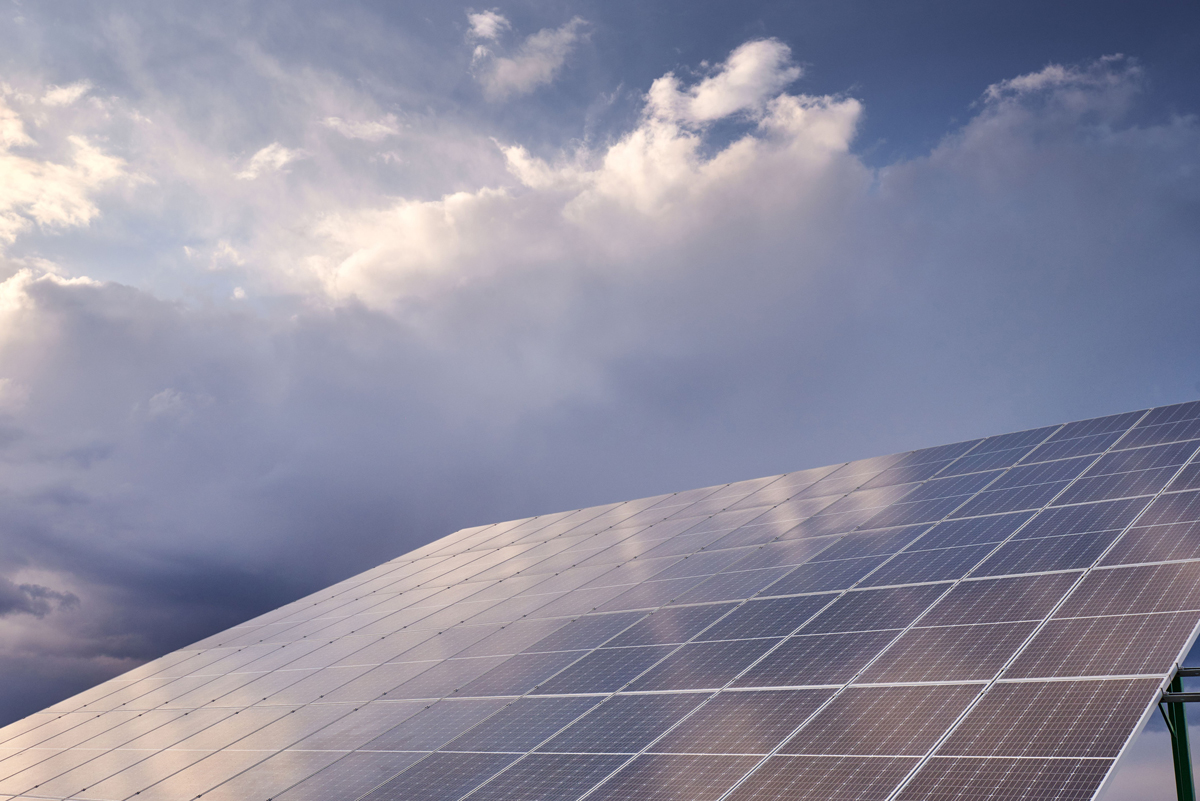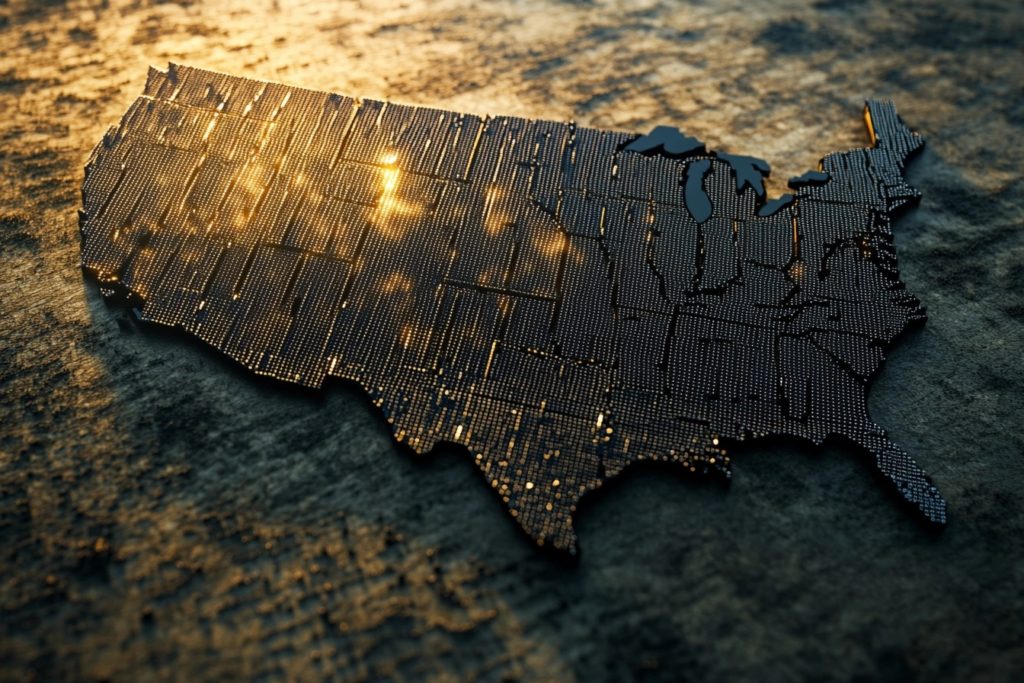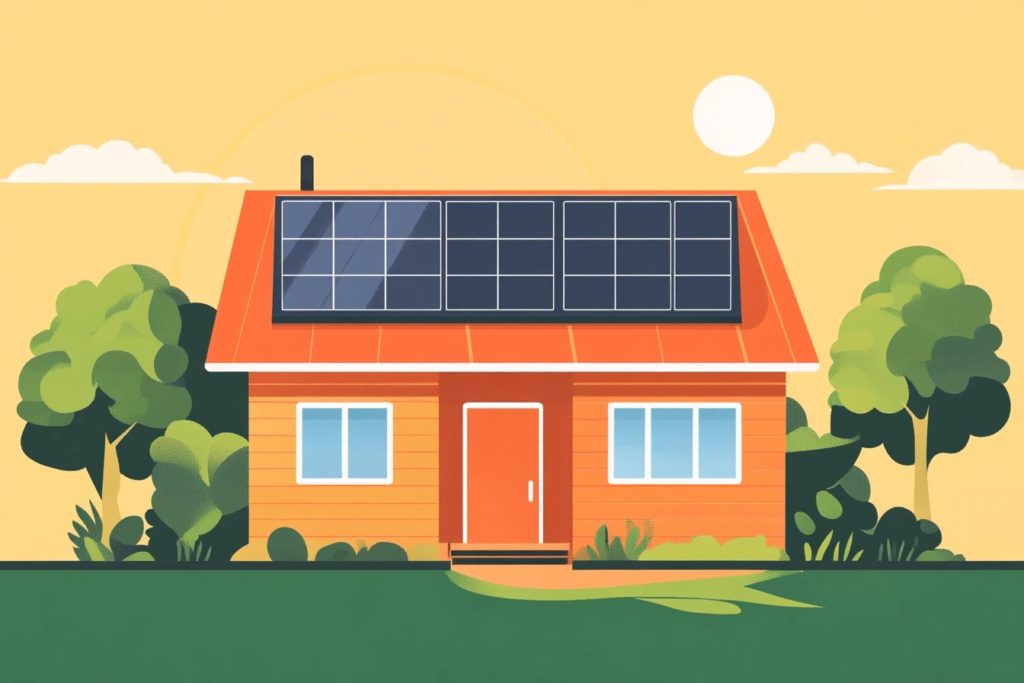
Are you thinking of making the switch to solar but are worried about losing power on cloudy days? Don’t worry because today, we’ll be separating fact from fiction when it comes to solar panels and less-than-ideal weather conditions so you can make a truly informed decision.
Let’s dive right in!
Do solar panels work on cloudy days: the short answer
There’s no need to worry because yes, most photovoltaic solar panels do work on cloudy days because they’re designed to generate power using both direct and indirect sunlight.
This, however, doesn’t mean they work as well as they do on sunny days. In fact, depending on the amount of cloud coverage, your solar panels could drop to as low as 10 to 25% capacity, which could mean insufficient power for your home, depending on how long the situation lasts.
But we’ll get to that later. Let’s first go over three other situations that may negatively affect your solar power system’s performance.
Situation 1: Rainy days
For the most part, the result would be the same. Since the sun doesn’t really “go away” on rainy days, your solar panels should still get some indirect sunlight to work with. This means while you do need to deal with lower levels of energy production, you don’t really have to worry about it ever dropping to zero.
And rainy days aren’t totally bad for solar energy systems either. Rainfall can actually wash away dirt and debris build up from solar panels, allowing them to work better on sunny days.
And with that said, let’s move on to the second situation.
Situation 2: Snowy days
At first glance, rainy and snowy days shouldn’t be all that different because there’s still some indirect sunlight available in both situations. However, the similarities stop there.
You see, unlike rain, which simply rolls off your solar panels, taking dirt and debris with it, snow actually ends up covering them, further reducing their ability to produce power for your home.
And even after it stops snowing, the snow already covering your solar panels would still be there until it melts. To make matters worse, it can also act as glue for dirt and debris, which can get left behind when it finally melts off. So, to make sure your solar panels are able to work at peak capacity during winter, always make sure it’s not covered in snow, dirt, and debris for extended periods of time.
But even on sunny days, it’s important to regularly clean your panels to prevent dirt and debris build up.
Situation 3: Nighttime
Unlike rainy days, which can actually be beneficial to your solar system, nighttime renders it completely useless—unless you implement the measures we’ll show you later.
As we’ve established earlier, solar panels are only able to produce power when there’s either direct or indirect sunlight available, which obviously isn’t the case at night.
There’s no need to worry, though. Again, there are measures you can take to ensure you have enough power to last through the night.
Option 1: Solar batteries
On sunny days, your solar power system tends to produce more energy than your household needs during peak sunlight hours. If you invest in solar batteries, you’ll be able to store this excess power for use either at night or during periods of decreased solar system performance.
This ultimately allows you to enjoy a steady supply of clean, affordable energy throughout the year despite changing seasons and weather conditions.
The only downside is that this benefit comes at a cost—literally—because you’ll have to purchase your batteries as an add-on to your solar energy system. In addition, you’ll also need to make sure you have enough extra space in your home to house them.
At the end of the day, it’s up to you to decide whether the convenience and peace of mind are worth the extra investment. But keep in mind that without solar batteries, you’ll need to buy power from the utility company whenever your solar power system isn’t producing enough energy (or at all), which also costs money.
Of course, you can always just consult a solar specialist to ensure you get the best setup for your specific needs based on your budget.
Option 2: Net metering
Simply put, net metering is an agreement with your utility company where you get to sell them any excess power your solar system produces in exchange for incentives such as rebates and credits.
You can use these incentives to offset—either partially or completely—the cost of buying power from the utility company during times of suboptimal solar power system performance.
However, while net metering is definitely a great alternative to purchasing solar batteries, especially if you have a limited budget, limited space at home, or both, it’s not yet available in all states. Make sure you check your local regulations first before making your decision.
What if net metering is not available in your area and you can’t afford solar batteries?
Even if net metering is not available where you live and it’s not financially feasible for you to purchase solar batteries, you still don’t actually have to worry about power outages at night or during less-than-ideal weather conditions.
First, if you stay connected to the grid after you have your solar system installed, your home will simply automatically switch to using power from it whenever your system fails to supply the amount you need.
Sure, without net metering, you’ll have to pay full price to the utility company whenever this happens, but it’s still a great way to ensure you won’t ever have to worry about only having power during sunny days.
Besides, the total amount you’ll be spending on electricity per year would still be lower compared to if you didn’t have your solar energy system.
Second, you can always just finance your solar power system purchase—including the solar batteries—so you don’t have to shell out as much cash up front (if at all). Let’s go over this in more detail in the next section.
Financing your solar power system purchase
When it comes to financing your solar system purchase, you have three primary options: a solar loan, a solar lease, and a solar PPA.
Let’s take a closer look at each one:
- A solar loan, as you may have guessed by the name, allows you to purchase a solar power system without paying for it up front. Instead, you pay a much smaller fee per month until you pay the total cost off.
By the way, if you ever decide to get your solar loan through LGCY Power, you’ll get access to benefits such as:
- Monthly payments lower than your energy bill
- System maintenance support
- Product and workmanship warranty
- Federal solar tax credit and other government incentives
- The second way to make acquiring a solar power system for your home easier on the budget is by getting a solar lease. It works practically the same way as a solar loan. The only difference is that you don’t actually get to own the system if you choose this option.
The benefits you get to enjoy in case you decide to get one through LGCY Power are exactly the same as well.
- The third option you have for making switching to solar more financially feasible is by signing a solar PPA (power purchase agreement). In this setup, the solar company retains ownership of the solar system and simply charges you for the amount of power you use.
It’s just like how you’re paying your utility company for electricity right now. The only difference is it costs significantly less and it uses a much cleaner and more sustainable resource to power your home.
Can high-efficiency solar panels make up for unfavorable weather conditions?
The short answer is probably not—unless you specifically account for the occasional performance drops when choosing a solar energy system for your home.
The problem with this approach is that you’ll be spending so much more money on a system that will produce significantly more energy than you need on sunny days—which you have no way of storing or earning from if you didn’t have solar batteries or a net metering agreement with your utility company.
But if you did have solar batteries and a net metering agreement in place, then you wouldn’t really need to account for performance drops in the first place.
Besides, even if you had the most efficient panels around, they still wouldn’t work at night anyway.
The bottom line
Even on cloudy, rainy, or snowy days, as long as there’s direct or indirect sunlight available, your solar energy system should still be able to produce power for your home, albeit at a lower capacity.
The only time solar panels actually stop working is at night when there’s absolutely no sunlight to work with—but this does not mean you have to bear with not having power every time the sun goes down.
You can ensure a steady supply of power all day every day by investing in solar batteries, signing up for net metering, or doing both.
Your next steps
Book a no-obligation free consultation with one of our solar panel consultants today so we can help you find (and install) the perfect solar power system for your home—and ensure you have access to clean, affordable power, year round.


 100% Free to use, 100% online
100% Free to use, 100% online 50,000 people have chosen LGCY
50,000 people have chosen LGCY Energy advisors ready to help
Energy advisors ready to help


